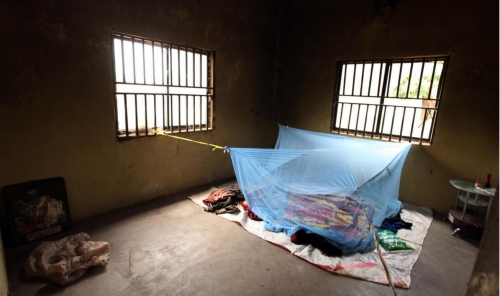USAID cuts rip through African health care systems
As clouds gather and humidity rises across west Africa, whose annual rains bring an uptick of deadly, malaria-carrying mosquitoes, Musa Adamu Ibrahim, a nurse, is sitting at home, unemployed.
In Nigeria -- home to 30 percent of the world's annual 600,000 malaria deaths -- clinics that once served 300 people a day in the conflict-hit Borno state have abruptly shut down, Ibrahim and other laid-off workers told AFP, following the withdrawal of American funding by President Donald Trump.
"The clinics have been closed and (there are) no more free drugs or mosquito nets," said Ibrahim.
The sudden dismantling of USAID -- the country's main foreign development arm -- is unravelling health care systems across Africa that were built from a complicated web of national health ministries, the private sector, nonprofits and foreign aid.
As the effects of the cuts compound, the resulting damage -- and deaths -- are unlikely to end anytime soon: malaria cases will peak around the end of the rainy season, while threatened American cuts to global vaccine funding would likely be felt later in the year.
In the meantime, the ripple effects continue to spread: alongside laid-off workers, malnutrition clinics have shuttered doors in Nigeria.
Rattled supply chains mean drugs are at risk of being stuck in warehouses in Mali. Children are walking miles to reach care in South Sudan for cholera care and dying along the way, and refugee camps in Kenya are facing medicine shortages.
"People with resources will be able to go and get drugs... but the poorest of the poor, out in remote areas of Nigeria and other parts of sub-Saharan Africa, they're the ones who will be cut off," said Lawrence Barat, a former senior technical advisor for the US President's Malaria Initiative (PMI).
"They're the ones whose children will die."
Related Posts

